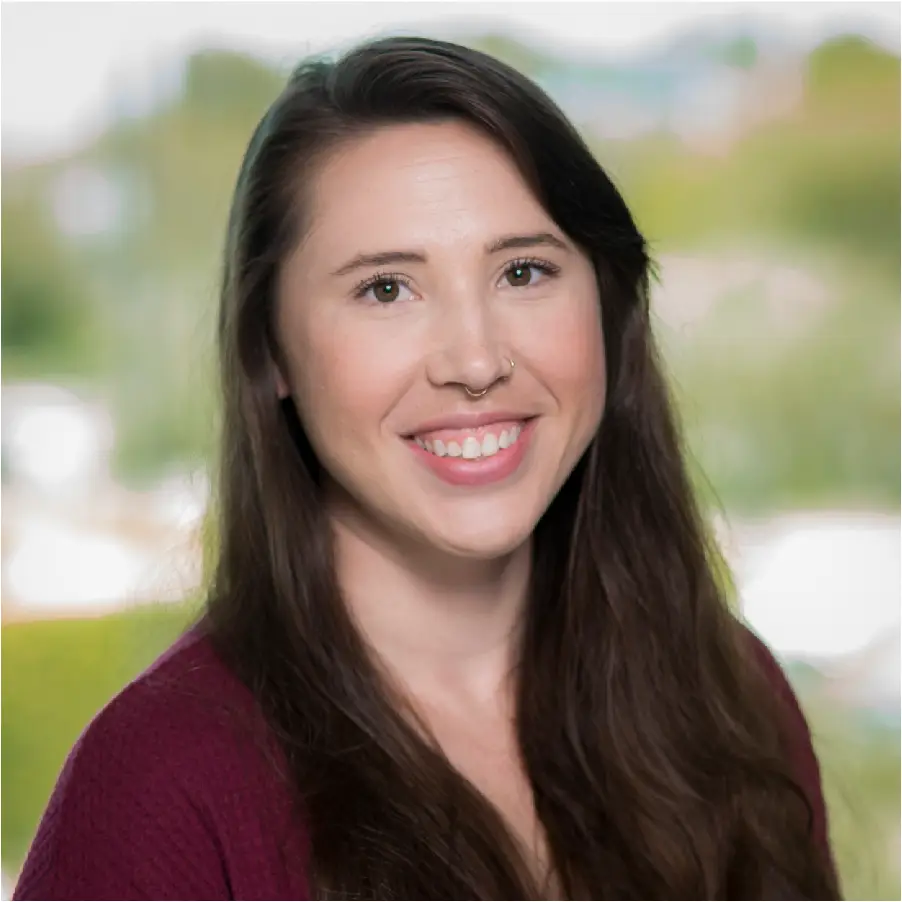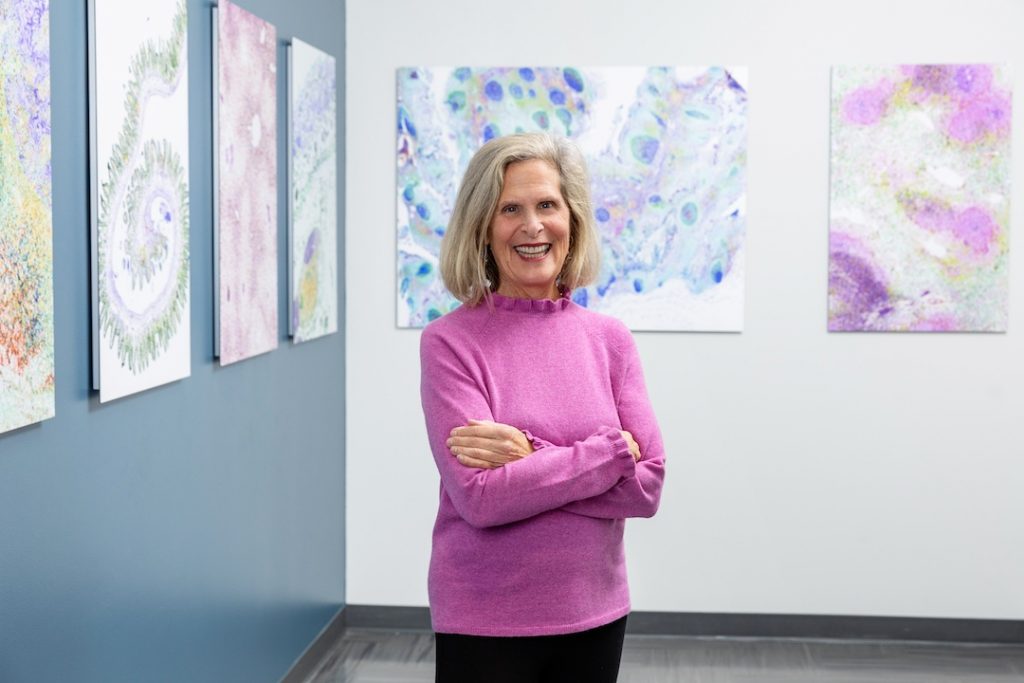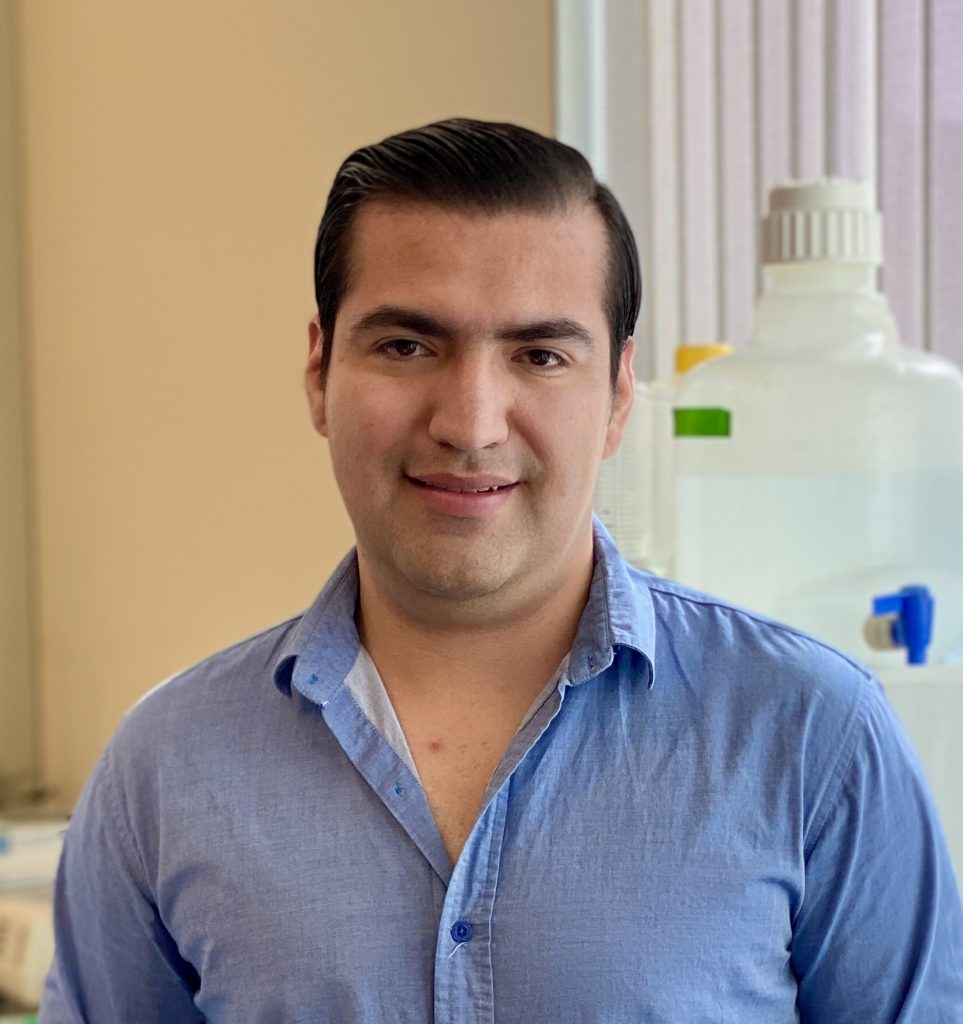Winning a National Science Foundation (NSF) Graduate Student Research Fellowship can be life changing. This year, graduate student Leila Chihab is one of the special few to have the NSF’s support behind her graduate studies.
The $138,000 award will fund three years of Chihab’s tuition and stipend as a UC San Diego graduate student working in the laboratory of Professor Bjoern Peters, Ph.D., at La Jolla Institute for Immunology (LJI).
“I didn’t believe it at first,” says Chihab, a second-year graduate student. “Everyone is encouraged to apply for this award because it’s such a good opportunity, but you are told not to get your hopes up.”
Chihab is working to improve cancer immunotherapies. She analyzes patient sequencing data—the genetic makeup of their individual tumors—to predict which neoantigens (new proteins on cells) can generate epitopes (vulnerable sites) that can be recognized by the immune system as cancerous. This research is critical for designing personalized cancer treatments.
She’s also investigating what makes some T cells good at fighting cancer. A part of the secret potentially lies in a cell’s TCR. TCRs are the molecules on the outside of T cells that allow them to recognize antigens. While T cells are great at learning to target invading pathogens, they can struggle to recognize “neoantigens,” the molecular markers that separate mutated cancer cells from normal cells nearby.
Chihab is hunting for the most useful T cells by analyzing data from single-cell sequencing. “I’m interested in identifying the sequences of the TCRs that can recognize neoantigens and studying if there are patterns in these TCRs and how we can use these patterns to optimize neoantigen prediction tools,” Chihab says.
The NSF was interested in supporting Chihab’s research because of her efforts to generate and harness massive datasets for bioinformatic research. In the end, Chihab hopes to help develop machine-learning algorithms that can detect TCR patterns in reams of single-cell data.
“It is not well understood which T cells are able to recognize cancer cells ,” says Chihab. “You can get data from thousands of cells in a single experiment, for example, but which cells are actually useful within the context of cancer?” This is what Leila hopes to study in her thesis.
Chihab has already spent over a year working in the Peters Lab, and she’s making progress. Along the way, Peters has encouraged her to branch out from her biochemistry background and learn more about immunology.
“Bjoern is a really great mentor. He meets you where you are at and gives you the space to learn and explore,” says Chihab. “I’m really excited to be using the NSF grant in his lab.”





